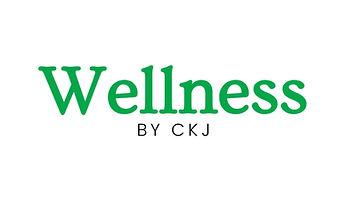WHY SKIN AGES (AND WHAT TO DO ABOUT IT)
- CKJ

- Jun 10, 2020
- 3 min read
There's no way to get around the changes--the wrinkles, hyperpigmentation, etc.--that happen to skin as you age. These transitions are natural and genetically predetermined, simply part of being a living thing. But consider that the vast majority of visible skin aging is due to UV exposure (according to one study, a whopping 80%); that should give you an idea of how habits play a significant role. Primarily, this indicates the need for proper sun protection.
Ahead, a look at three visible signs of aging skin, plus ways to lessen them.
Wrinkles
The Cause
The natural production of collagen and elastin, protein fibers in your skin that give it firmness and elasticity, starts slowing in your twenties. Without their bouncy, structural support, skin starts to show lines and creases. Other factors hasten this process and actually destroy these proteins. UVA rays from the sun penetrate deep within skin and free radicals (unpaired electrons) from various environmental sources, including the sun, pollution and cigarette smoke, wreak inflammatory chaos.
The Fix
To preserve what you've got, wear a broad-spectrum (meaning it protects from both UVA and UVB rays) sunscreen daily along with a topical antioxidants like Vitamin C. They work synergistically--a sunscreen made with non-nano zinc oxide, the cleanest SPF option, sits on top of the skin and blocks UVA and UVB rays from entering. Think of antioxidants as an insurance policy for your skin, which helps to neutralize free radicals.
In addition, there are treatments that can help kickstart your dwindling collagen production. Retinoids, synthetic derivatives of Vitamin A, are the most research-supported option for this in terms of their efficaciousness. But they can be incredibly irritating, particularly for sensitive types and it's difficult to find a clean version. Most are either preserved with a potential toxin like BHT or aren't preserved effectively. Fortunately, there are alternatives. Rosehip seed oil and algae extract have demonstrated skin-regenerating effects in studies.
Hyperpigmentation
The Cause
These dark spots happen when the skin's pigment producing cells, melanocytes, simply churn out too much melanin. There are a few different causes (including hormone changes during pregnancy), but one significant one is, again, free radical exposure. When you're young, these spots fade away more easily, but over time, as skin's turnover process wanes, the discoloration tends to hang around.
The Fix
In the same way that antioxidants work with SPF to neutralize free radicals, preventing lines and wrinkles, they do the same when it comes to staving off hyperpigmentation. Even better, they can actually help reverse the discoloration by putting a roadblock at some point in the pigmentation process. Researchers speculate that the reason Vitamin C is such an effective brightener is because it somehow interferes with pigment-producing enzyme tyrosinase.
Dryness and dullness
The Cause
The skin barrier, the first line of defense between you and the outside world, takes a battering over time. As it weakens, it becomes harder for skin to hold onto moisture. Additionally, your own production of natural moisturizers slumps anyway, starting in your 30s. This includes lipids like ceramides and essential fatty acids, which are like the glue that holds the skin barrier together, and hyaluronic acid, a sugar that binds water in skin. In turn, this creates a double whammy of dehydration. At the same time, cellular turnover, the process by which skin naturally replaces dead skin skills with new ones, declines, leaving you with a duller skin surface.
The Fix
Simply replace what's missing to build a stronger, more moisturized barrier. Scan ingredient lists for ceramids and low-weight hyaluronic acid. Hyaluronic acid can dive deep into skin and absorb water like a sponge. Essential fatty acids from plant sources, including the marula, chia, kiwi and hemp seed oils are imperative.
Exfoliating can help compensate for the slower cell turnover--but doing so gently is crucial, because you don't want to aggravate the barrier you're working hard to fortify. Ideally, do this no more than twice a week. Most dermatologists prefer alpha hydroxy acids over physical exfoliators like scrubs. Alpha hydroxy acids help to slough away dead skin cells to counter dullness and tackles virtually every other sign of aging as well by stimulating collagen, reducing hyperpigmentation and prompting ceramide production--a multitasking skin wonder.

























Comments